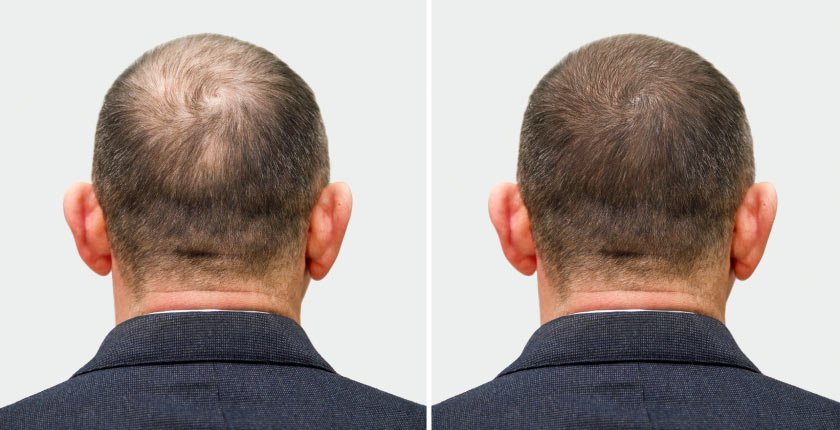Achieving successful hair restoration is an exciting milestone, but maintaining results requires long-term care and lifestyle adjustments. Whether you’ve undergone a hair transplant, SMP (Scalp Micropigmentation), or other treatments, preserving your newly restored hair involves adopting healthy habits and following specific care routines. In this blog, we’ll explore essential strategies for maintaining hair restoration results and optimizing long-term hair health.
1. Understand Your Treatment Plan
Each hair restoration method comes with its own post-treatment care requirements:
- Hair Transplant: If you’ve undergone a hair transplant (FUE or FUT), follow your surgeon’s instructions for washing, grooming, and protecting your scalp during the initial recovery period. This includes avoiding direct sunlight, minimizing physical activity, and using prescribed medications to aid healing.
- Scalp Micropigmentation (SMP): After SMP, maintain the pigmented scalp by gently cleansing it with mild products and avoiding abrasive or chemical-laden shampoos that could fade the pigment. Protecting your scalp from excessive sun exposure is also crucial.
- Medications and Treatments: If using medications like minoxidil (Rogaine) or undergoing laser therapy, consistency in application and adherence to treatment schedules are key to maintaining effectiveness.
2. Adopt a Healthy Hair Care Routine
Establishing a regular hair care regimen tailored to your specific needs promotes scalp health and prolongs the longevity of your hair restoration results:
- Gentle Cleansing: Use a mild shampoo and conditioner recommended by your hair restoration specialist. Avoid harsh products that can strip natural oils or irritate the scalp.
- Scalp Massage: Regular scalp massages improve blood circulation, which can stimulate hair follicles and promote healthy hair growth.
- Avoid Overstyling: Limit the use of heat styling tools, harsh chemical treatments, and tight hairstyles that can cause damage or stress to the hair follicles.
3. Nutrition and Hydration
A balanced diet rich in essential nutrients supports overall hair health and growth:
- Protein-Rich Foods: Incorporate lean proteins like fish, poultry, eggs, and legumes to provide the building blocks for hair structure.
- Vitamins and Minerals: Consume foods high in vitamins A, C, D, E, and B-complex vitamins, as well as minerals like zinc, iron, and biotin, which are essential for hair growth.
- Hydration: Drink plenty of water to maintain scalp hydration and support hair follicle function.
4. Manage Stress and Maintain Overall Health
Stress can contribute to hair loss and impact the effectiveness of hair restoration treatments:
- Stress Management: Practice relaxation techniques such as meditation, yoga, or deep breathing exercises to reduce stress levels and promote hair health.
- Regular Exercise: Engage in regular physical activity to improve circulation, which supports nutrient delivery to hair follicles and overall scalp health.
- Quit Smoking: Smoking restricts blood flow to the scalp and can accelerate hair loss. Quitting smoking promotes better hair growth and overall health.
5. Regular Follow-Up and Maintenance
Schedule periodic follow-up appointments with your hair restoration specialist:
- Assessment: Regular check-ups allow your specialist to monitor the condition of your scalp and hair, assess treatment effectiveness, and make adjustments as needed.
- Treatment Updates: Depending on your progress and evolving needs, your specialist may recommend additional treatments or adjustments to your current regimen to optimize results.
6. Protecting Your Investment
Investing in your hair restoration also means protecting it from external factors:
- Sun Protection: Wear hats or use sunscreen on your scalp to shield it from harmful UV rays, which can damage hair follicles and affect pigmented areas after SMP.
- Environmental Factors: Minimize exposure to pollutants, chemicals, and extreme weather conditions that can compromise scalp health and hair growth.
Conclusion
Maintaining hair restoration results involves a combination of diligent care, healthy lifestyle choices, and ongoing support from your hair restoration specialist. By adhering to a personalized care routine, adopting scalp-friendly habits, and addressing any changes in your hair health promptly, you can preserve and enhance your newly restored hair for the long term. Remember, consistency and proactive management are key to enjoying sustained results and feeling confident in your appearance post-treatment.

